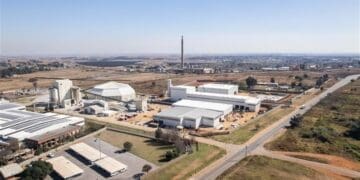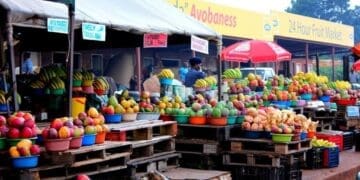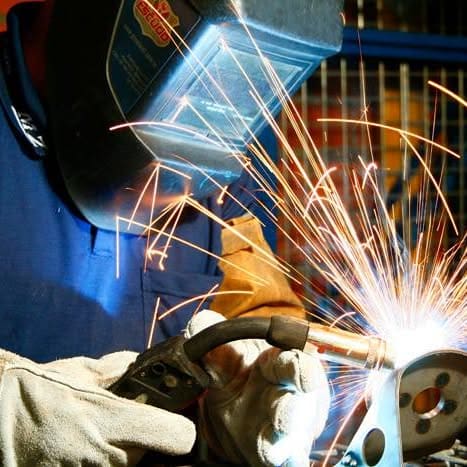Small and medium-sized steel manufacturers are warning that they are being priced out of the market while thousands of jobs hang in the balance.
The crisis intensified in August 2025 when the United States imposed a 30% tariff on South African steel exports, a move that government officials say has placed nearly 30,000 jobs at immediate risk.
The tariffs came at a time when the local industry was already under pressure from cheap imports, particularly from China, which supplies about 35% of South Africa’s steel. To counter this, the International Trade Administration Commission (ITAC) proposed new duties of 10% on flat-rolled steel products and 15% on tubes and nails to shield domestic producers.
While these measures were introduced to protect the industry, they have had a punishing effect on SMEs that rely on affordable steel to produce everything from roofing sheets and fencing to auto parts. These businesses lack the financial muscle of larger firms to absorb sudden price hikes or to hedge against volatile international markets.
Sipho Mthethwa, who runs a welding and steel fabrication workshop in KwaMashu, Durban, said the past three months have been devastating.
He said before the tariffs were introduced, he could order steel in bulk at predictable prices, which allowed him to plan and keep his operations running smoothly.
“Now, every time I go to my supplier, the cost has gone up again. I have had to cancel two major orders because my clients could not afford the new prices, and I am considering letting go of three workers. These are not just employees, they are fathers and mothers who depend on this work to feed their families,” said Mthethwa.
The ripple effect is being felt across the value chain. Nomvula Khosa, who owns a construction firm in Soweto, said the rising cost of steel has made it nearly impossible to stay competitive when bidding for contracts. She explained that steel is a major input in her projects, whether for gates, beams, or roofing.
“When our costs go up, we either pass them to the client and risk losing business, or we take the hit ourselves and risk shutting down. It’s a lose-lose situation for small companies like mine,” Khosa said.
According to a recent survey by the Steel and Engineering Industries Federation of Southern Africa (SEIFSA), a third of SMEs in the sector have already experienced direct losses due to the US tariffs, while another quarter are feeling the indirect effects through disrupted supply chains and delayed payments.
SEIFSA warned that if no relief measures are introduced for downstream businesses, the industry could face a wave of closures before the end of this year.
So far, government interventions have focused on protecting the country’s largest steel producer, Tariff turmoil threatens SMEs in the steel industry(AMSA).
Earlier this year, the Industrial Development Corporation (IDC) injected R1.68 billion into AMSA to prevent the closure of two long-steel plants that would have cost thousands of jobs.
This month, the National Energy Regulator (NERSA) approved discounted electricity tariffs for the company to help reduce production costs. However, smaller businesses say these interventions have done little to ease their struggles.
Some entrepreneurs are attempting to adapt to the changing landscape. Mthethwa said he has begun exploring aluminium as an alternative material to reduce reliance on steel, while others are looking to expand into regional markets through the African Continental Free Trade Area (AfCFTA), which offers lower tariffs and growing demand for construction materials.
However, these pivots require capital that many small businesses simply do not have. Khosa explained that while she would like to diversify her business, financing
remains a major barrier.
“We want to diversify, but banks see our industry as too risky. Government grants exist on paper, but the application process is so complicated that it feels impossible for small businesses to access,” she said.
The stakes are high not only for SMEs but also for the broader South African economy. The steel industry supports an estimated 190,000 jobs, many of which are based in towns and townships where alternative employment opportunities are scarce.
If small manufacturers continue to shut their doors, the ripple effects will spread to sectors such as construction, mining, and automotive production.
Trade experts have cautioned that policymakers need to strike a delicate balance between protecting the local industry from unfair competition and supporting the smaller businesses that make up its backbone. Without targeted relief for SMEs, the market risks becoming dominated by a handful of large firms, leaving it vulnerable to external shocks and stifling entrepreneurship.
For business owners like Mthethwa, the stakes are deeply personal. He said that every decision he makes now affects not just his livelihood, but also the families of his employees and the community that depends on his workshop.
“If we collapse, entire communities collapse with us,” he said. “We need solutions that include the small guys, not just the giants.”
lazola@vutivibusiness.co.za


























































